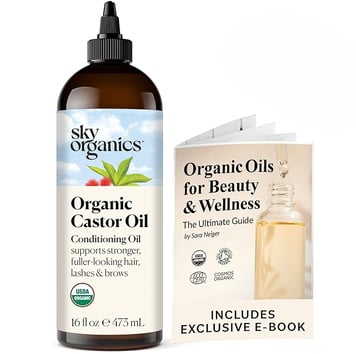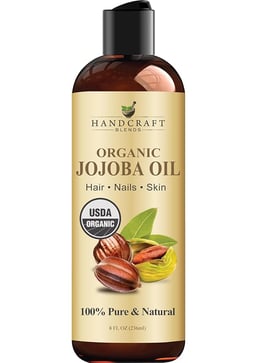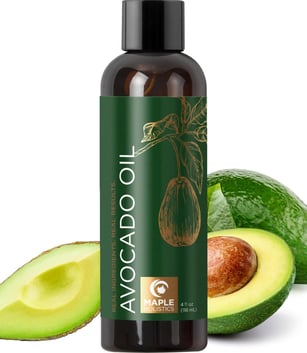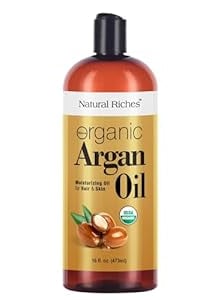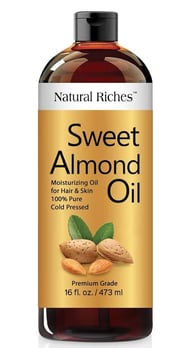The Importance of Hydration for Healthy Hair: Benefits of Carrier Oils
Why Hydration is Vital for Your Hair
Understanding the importance of hydration for maintaining healthy hair requires a basic knowledge of hair structure. Hair comprises three main layers: the cuticle, cortex, and medulla. The outermost layer, the cuticle, consists of overlapping cells that protect the inner structures. Beneath the cuticle lies the cortex, which contains proteins and pigments responsible for hair's strength and color. At the core is the medulla, which can be absent in finer hair types. Hydration plays a crucial role in maintaining the integrity and health of these layers.
When hair lacks adequate moisture, the cuticle's protective function is compromised. This leads to common signs of dehydrated hair, including brittleness, breakage, and dullness. Without sufficient hydration, the cortex can lose its elasticity and strength, making hair more susceptible to damage. Hydrated hair, on the other hand, maintains its flexibility, reducing the risk of breakage and split ends. Water is essential for the biochemical processes within the hair shaft to keep it resilient and shiny.
Several environmental and lifestyle factors can contribute to hair dehydration. Prolonged exposure to the sun's UV rays can strip moisture from the hair, leaving it dry and fragile. Heat styling tools, such as blow dryers, curling irons, and straighteners, can also deplete the hair's natural moisture, leading to thermal damage. Also, improper hair care routines, such as over-washing and harsh shampoos, can strip natural oils that help retain moisture. Even environmental conditions, like low humidity, can exacerbate hair dehydration.
Maintaining proper hydration involves drinking enough water and using appropriate hair care products and routines that support moisture retention. By understanding hair structure and the factors that lead to dehydration, individuals can take proactive steps to ensure their hair remains healthy, strong, and vibrant.
The Benefits of Hydrated Hair
Maintaining well-hydrated hair offers many benefits that contribute significantly to its overall health and appearance. Proper hydration is critical in ensuring hair remains resilient to damage. Hydrated hair has a robust structure, which makes it less susceptible to breakage and split ends. This resilience is essential for maintaining length and volume, as well as for overall hair health.
One of the most noticeable advantages of hydrated hair is its manageability. When hair is adequately moisturized, it becomes easier to detangle and style. This ease of management saves time and reduces the stress on hair strands during brushing and styling. Hydrated hair also boasts a natural shine that is often sought after; the moisture helps to smooth the hair cuticle, allowing light to reflect more effectively off the surface, giving it a lustrous appearance.
Furthermore, hydration plays a crucial role in minimizing frizz and enhancing smoothness. Frizz is often caused by dry hair absorbing moisture from the air, causing the hair shaft to swell and become unruly. Maintaining proper hydration levels within the hair can significantly reduce this unwanted frizz, resulting in smoother, sleeker hair.
Hair care professionals consistently emphasize the importance of hydration for healthy hair. According to Dr. Jane Smith, a renowned trichologist, "Hydrated hair is more elastic and less prone to breakage. It also responds better to styling and holds its shape longer." Scientific studies also support these claims, indicating that hydrated hair absorbs hair care products more effectively. This enhanced absorption ensures that treatments, conditioners, and other hair care products penetrate deeper into the hair shaft, making them more effective.
In summary, the benefits of hydrated hair extend beyond mere aesthetics. Proper hydration ensures that hair remains strong, manageable, and naturally shiny while enhancing the efficacy of other hair care treatments. Thus, prioritizing hydration is fundamental in achieving and maintaining healthy hair.
Using Carrier Oils to Seal in Hydration
Carrier oils are natural oils derived from the fatty portions of plants, typically from seeds, nuts, or kernels. Unlike essential oils, which are highly concentrated and volatile, carrier oils are mild and can be used directly on the skin and hair without irritating. These oils are crucial in sealing moisture into hair strands, maintaining hydration, and promoting overall hair health.
Among the most popular carrier oils for hair care are coconut, argan, jojoba, and almond. Each of these oils offers unique benefits:
Coconut Oil: Renowned for its deep moisturizing properties, coconut oil penetrates the hair shaft to provide long-lasting hydration. Its high lauric acid content also has antimicrobial properties that can help maintain a healthy scalp.
Argan Oil: Often referred to as "liquid gold," argan oil is rich in vitamins, antioxidants, and essential fatty acids. It helps to smooth frizz, add shine, and protect hair from environmental damage.
Jojoba Oil: Closely mimicking the natural oils of the scalp, jojoba oil is excellent for balancing oil production. It provides lightweight hydration, making it suitable for all hair types, including fine hair.
Almond Oil: Packed with vitamins E and B, almond oil helps to soften and strengthen hair while preventing breakage. It also offers soothing properties for a dry, itchy scalp.
To apply these carrier oils for maximum hydration benefits, follow these steps:
1. Start with clean, damp hair to allow better oil absorption.
2. Warm a small amount of oil between your palms to enhance its penetration.
3. Apply the oil evenly from mid-lengths to ends, avoiding the scalp to prevent buildup.
4. Use a wide-tooth comb to distribute the oil and ensure every strand is coated.
5. For deep conditioning, wrap your hair in a warm towel and leave it on for 30 minutes to an hour before rinsing.
Incorporate this treatment into your hair care routine once or twice a week, depending on your hair's needs. However, be mindful of potential downsides, such as oil buildup, which can make hair appear greasy. To address this, use a clarifying shampoo once a month to remove residue. Also, a patch test should be conducted before using a new oil to rule out allergies.

